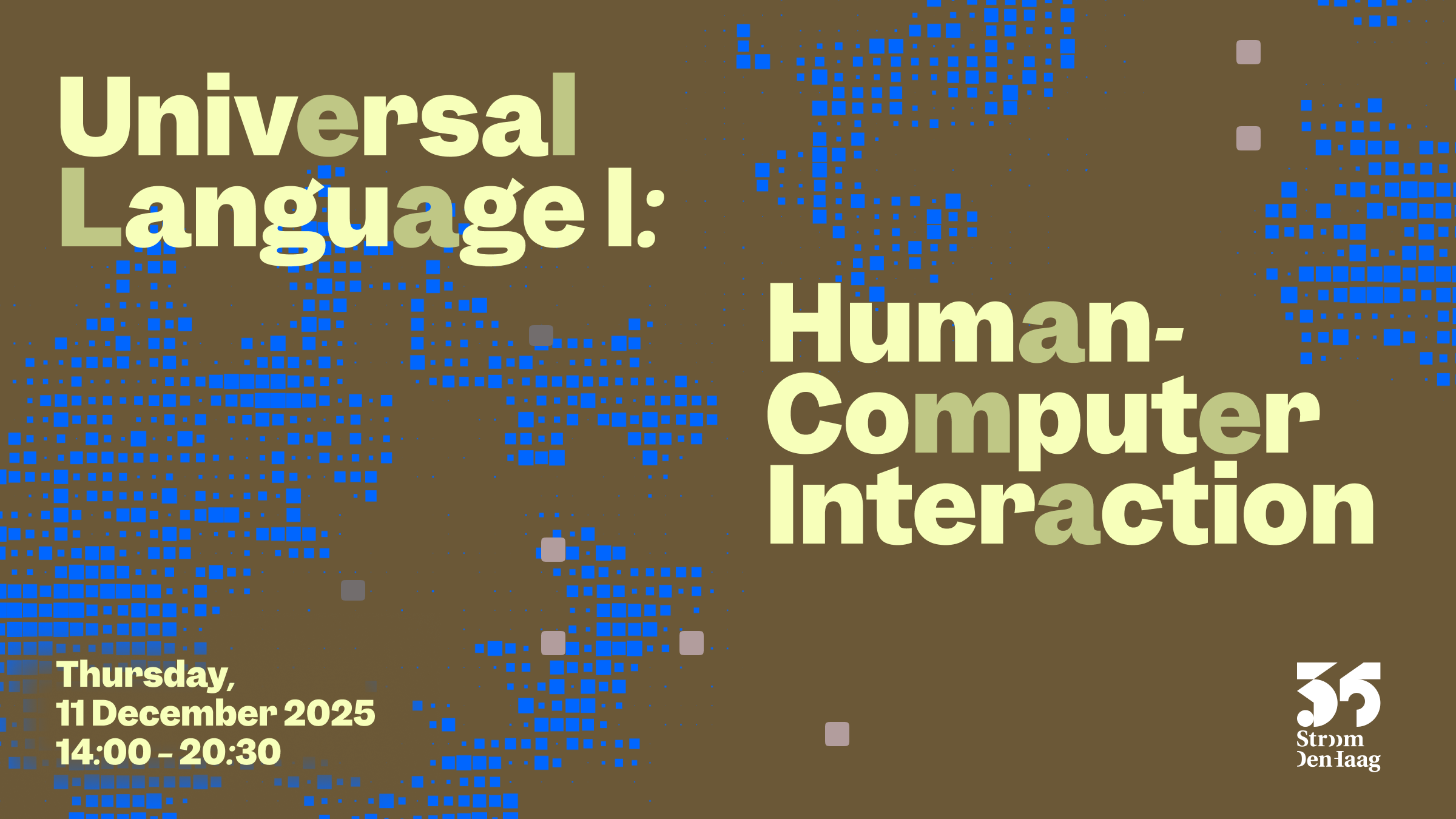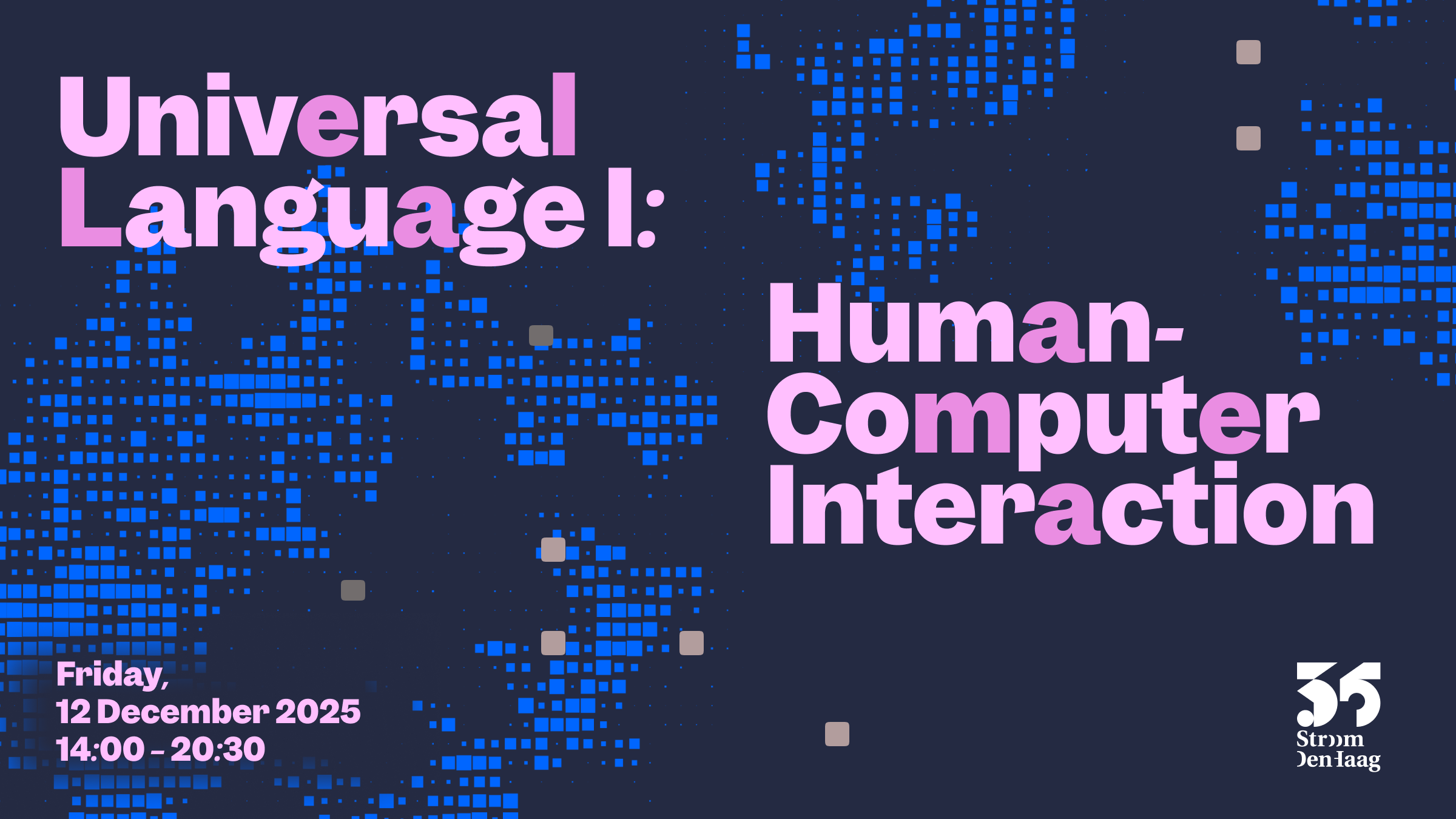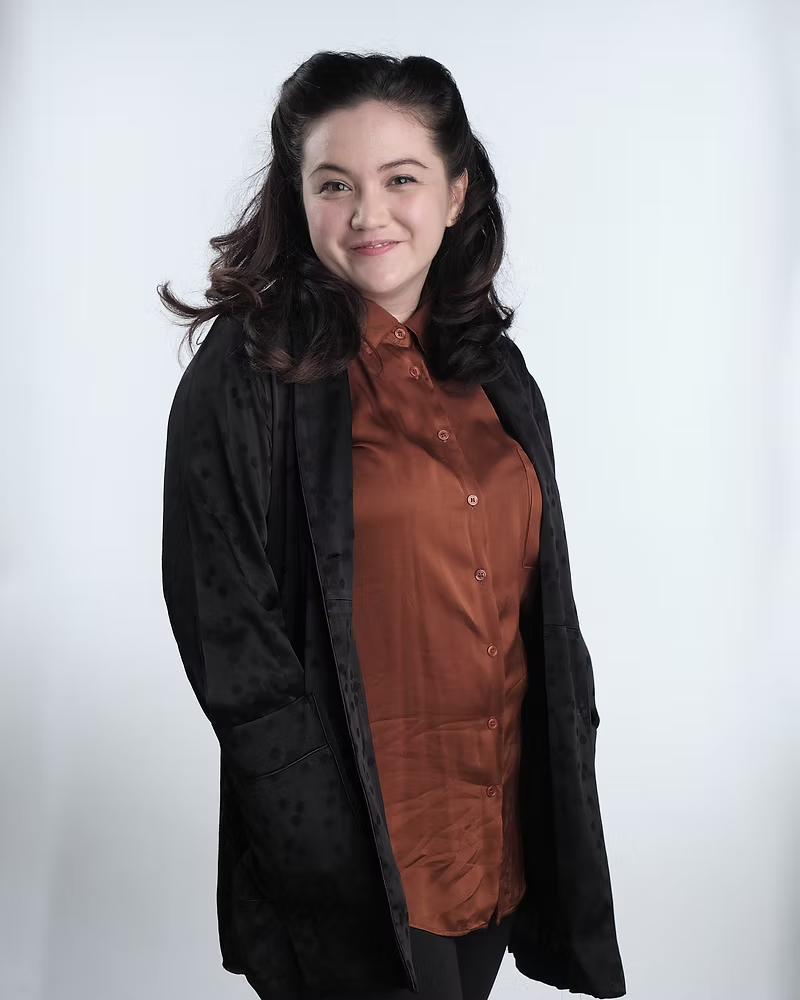Symposium Universal Language I: Human-Computer Interaction
A two-day gathering on computation’s counter-histories and digital possibilitiesDate: Thursday 11 December and Friday 12 December, 2025
Location: Stroom Den Haag, Hogewal 1-9, Den Haag
Sign up for 11 December: Eventbrite
Sign up for 12 December: Eventbrite
Human-Computer Interaction, is the first gathering of a year-long program for Stroom Den Haag’s multi-year initiative, Entangled Codes, which frames contemporary technology in relation to public space, and civic life.
Over two days, and with additional online events and resources, artists, scientists, researchers, and creative practitioners piece together just a few of the multiple histories of electronic and digital systems that took root outside of the 20th century’s putative center alongside creative computational practice today. Invoking the many alternate math-forms, theories, and digital infrastructures already in place, if in latency, invited presenters point to the limited and arbitrary nature of the technological tools and research methodologies on offer today.
Additionally, the program highlights the critical role of art and poetics in creating digital systems that are responsive to social and ecological life. Furthermore, it counters their role as inevitable frameworks–locked not only in a binary of code and data processes, but in attitudes of certainly and unstoppable growth.
About the event:
Day 1 - Thursday, 11 December: Zeros and Zeros
Non-binary Turing machines, the i-ching, spectrograms, electronic dance music, subjective math logics, digital-cultural mistranslations, divination systems and predictive technologies are brought together over the first day. Following an introductory lecture by curator Rachael Rakes, contributors Evelyn Wan, Gary Stewart (Bantu), and Rodrigo Ochigame present multiple histories and possible forms of computation, highlighting systems technology’s entanglement across cultural, social. and economic life. Afterwards, all gathering participants from both days come together for a roundtable discussion in which audience engagement is also encouraged. The program then pauses and resets for the live performance Chaos Theory and the Black Gaze by Gary Stewart followed by drinks and bites.
Day 2 - Friday, 12 December: Patterned Behavior
Language of mathematics, movement, and visual memory fold together in these contributions that speculate on meaning-making’s many forms. Cybernetic systems conveyed through futurist art in in South-East Asia joins with space-time collapsing records of rhythm keeping over centuries throughout the African Continent, and nodes that synthesize a language in latency offer a model to view language development in both living beings and A.I. that is multidimensional and constantly in change. During the day, presentations by Nyokabi Kariũki, Kathleen Ditzig, and Aslı Nur Mahmutoğlu, are followed by a second all-group discussion. In the evening, Kariũki performs Body, Bend, the new solo composition by the musician exploring memory and knowledge through “embodied percussion.”
About the participants:
Aslı Nur Mahmutoğlu is an artist, engineer, poet, performer and designer based in Turkey and the Netherlands. Her current research reconfigures language, poetry, and translation as movement through multidimensional space, or the latent space of machine learning. She studied Electronics Engineering at Istanbul Technical University (Turkey), and is a graduate of the Master’s programme Artificial Times (MFA) at Sandberg Instituut in Amsterdam.
Evelyn Wan is an artist-scholar and dramaturg. She is Assistant Professor in Media, Arts, and Society at the Department of Media and Culture Studies at Utrecht University, where she coordinates the MA Arts and Society programme, and works on interdisciplinary curriculum innovation in the domain of Humane AI. Her award-winning research studies historical and contemporary technologies through the lens of decolonial media studies and performance studies. She is a founding member of the Hong Kong-based artistic collective If Time’s Limited.
Gary Stewart is an interdisciplinary artist in sound, moving image and computational creativity. Operating through theoretical, fictional, and artistic frames he is part of a global network of collaborators who are advocates for equality, climate justice and better health through the arts, especially for those from marginalised communities. His work merges media technologies, rituals and practices and explores how they shape human culture and social life in relation to power and inequality. With Trevor Mathison, Stewart is a founding member of Dubmorphology, the London-based group that emerged over two decades, and frequently reworks historical, political, social and scientific archives. He performs under the moniker of Bantu, exploring and bringing new perspectives to “Black Noise” as it relates to abstract distortions, infra bass and sonic transformation.
Kathleen Ditzig is a Singaporean art historian and curator. She has written about global histories of culture, finance, and geopolitics through the lens of Southeast Asian Modern and Contemporary art. She received her PhD from the Nanyang Technological University in Singapore in 2023 with the dissertation titled “Exhibiting Southeast Asia in the Cultural Cold War: Geopolitics of Regional Art Exhibitions (1940s-1980s).” She obtained an MA from the Center for Curatorial Studies, Bard College in New York in 2015. As a curator at National Gallery Singapore, she researches art histories of technology from a Southeast Asian perspective and works on projects related to advanced technologies. She co-curated the exhibition Art Histories of a Forever War: Modernism between Space and Home at the Taipei Fine Arts Museum (2021-2) and the traveling exhibition Afro-Southeast Asia: Pragmatics and Geopoetics of Art during a Cold War (2021-2), which traveled to Singapore, Manila, and Busan.
Nyokabi Kariũki (she/her) is a Kenyan composer, sound artist, and artistic researcher. Her sonic imagination is ever-evolving, spanning across various genres from classical contemporary to experimental electronic music, explorations in sound art, pop, film, (East) African musical traditions and more. She performs with the piano, voice, electronics, and on several instruments from the African continent — particularly on kalimbas and the mbira. Nyokabi’s work, going from her acclaimed EP peace places: kenyan memories (SA Recordings) to her debut album FEELING BODY (cmntx records), have been described as “deft” (The Quietus) and “transcendent” (The Guardian), with Bandcamp highlighting seeing her as “becoming a crucial voice in contemporary composition and experimental music.” She seeks to create meaningful and challenging art, illuminated by a commitment to the preservation and reflection on African thought, language and stories.
Rodrigo Ochigame is a historian and anthropologist of computing and artificial intelligence. Their first book project, Remodeling Rationality, is a global history of unorthodox models of computational reasoning during the Cold War, such as non-classical logics, non-binary Turing machines, and unconventional artificial neural networks. Their second project, Beyond “Ground Truth”, is a historical and ethnographic study of computational modeling, especially machine learning, in diverse fields of scientific research, including pure mathematics, particle physics, and climate science. It is supported by a Veni grant from the Dutch Research Council (NWO). Ochigame holds a BA with highest honours from the University of California, Berkeley, and a PhD from the Massachusetts Institute of Technology (MIT).








